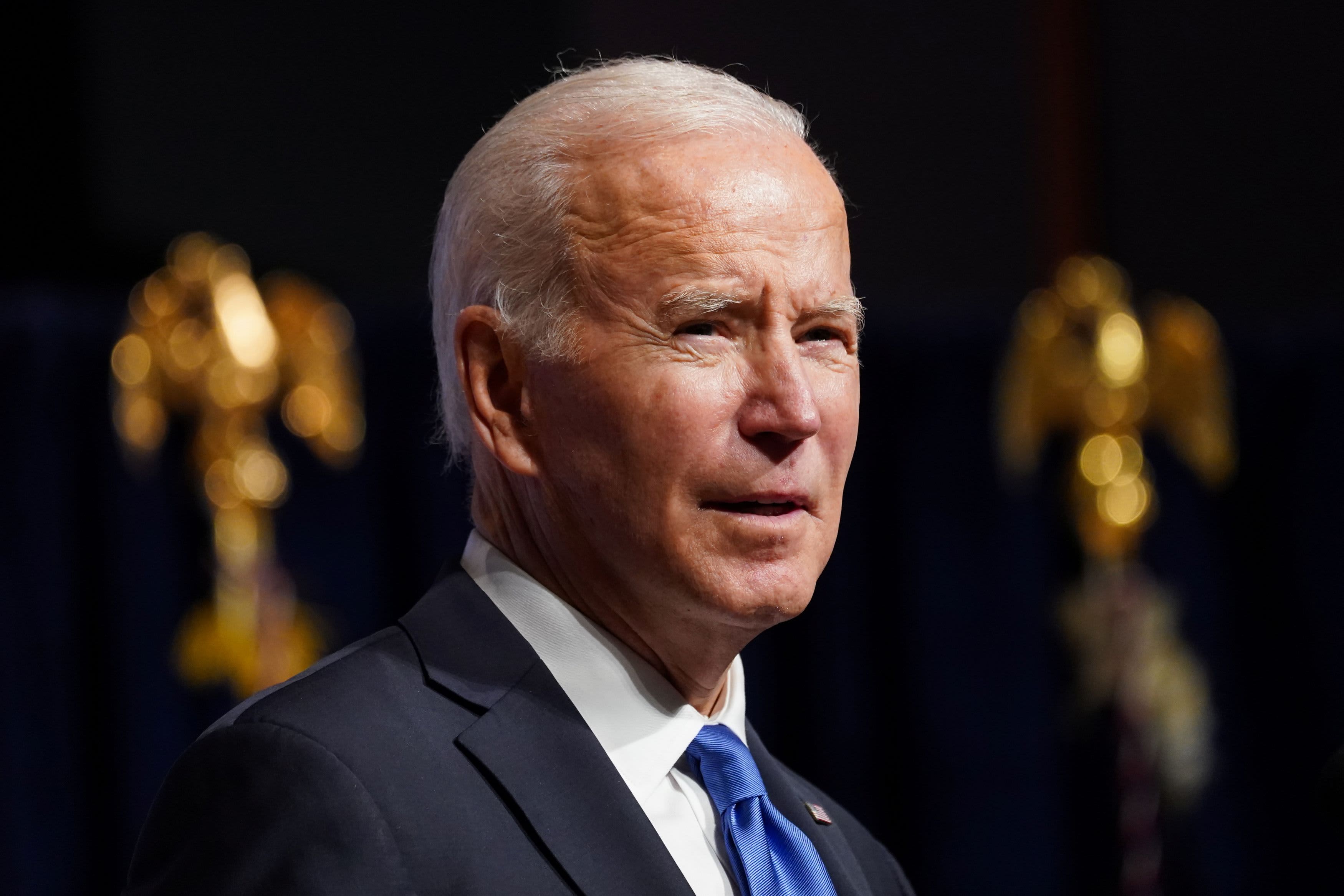
U.S. President Joe Biden speaks about his administration’s plan to fight the coronavirus disease (COVID-19) with the emergence of the Omicron variant, during his visit to the National Institutes of Health, in Bethesda, Maryland, U.S., December 2, 2021.
Kevin Lamarque | Reuters
President Joe Biden signed a short-term government funding bill on Friday, snuffing out one looming crisis as Congress turns its gaze toward two other big-ticket items.
Biden’s signature prevents a shutdown hours before an end of Friday deadline. The measure — which the House and Senate passed Thursday — will keep the government running through Feb. 18.
With the threat of a disruptive funding lapse quashed, lawmakers will move to the next steps in a daunting December to-do list. The Democratic-led Congress will next try to stave off a potential default on U.S. debt, pass Biden’s $1.75 trillion Build Back Better Act and approve an annual defense budget bill.
Treasury Secretary Janet Yellen expects the U.S. will hit its debt ceiling on Dec. 15 if lawmakers do not raise or suspend the limit. Republicans have said they will not vote to hike the U.S. borrowing limit, but Senate Minority Leader Mitch McConnell has signaled he may not block Democrats from doing so on their own.
The GOP has argued Democrats need to raise the debt ceiling alone as they try to pass their sprawling social spending bill without Republican votes. Yellen has pointed out that Congress would have had to increase the limit regardless of what legislation Democrats passed this year. Raising or suspending the debt ceiling does not authorize new spending.
While Democrats try to defuse the risk of a default, they also aim to push Biden’s top domestic priority through the Senate. Majority Leader Chuck Schumer wants to pass the Build Back Better Act — which would invest in child care, household tax credits, Medicare, Medicaid and green energy — by Christmas.
He awaits word from the Senate parliamentarian about whether the plan complies with the budget process that will allow Democrats to pass it on their own. Schumer will also need to win over Democratic Sens. Joe Manchin of West Virginia and Kyrsten Sinema of Arizona, who have not yet signed off on the bill.
The House passed its version of the plan last month. The Senate will likely make changes, meaning the House would have to vote a second time.
The flurry of activity in the Senate does not stop with the sprawling social-spending plan. The chamber is also trying to pass the annual National Defense Authorization Act, which sets spending levels for defense programs.
The legislation has hit a wall in the Senate amid an impasse over a package of amendments to it.
Meanwhile, Biden’s signature on the spending bill only delays the threat of a shutdown. Democrats will try to craft full-year appropriations bills that can pass both chambers of Congress before funding runs out on Feb. 18.
Still, Republicans have preferred longer continuing resolutions, which lock in Trump-era funding levels tailored more to GOP priorities.




